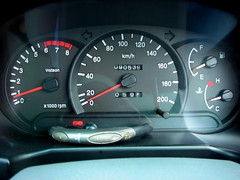At one time or another most children are asked what it is they want to do when they grow up. Consensus is building that the answer to that question is not a single answer anymore.
Financial planners consistently tell us that we should have diversity in our investment portfolios. Diversity, they say, provides a hedge against the risk of a single investment failing. I am a strong supporter of diversity in income sources. Multiple streams of income can provide a hedge against an interruption of a one income stream. It is a reality of the global economy that almost everyone is vulnerable to a layoff. If your current job is your only source of income, a layoff is potentially devastating to your family’s financial health. If you are a business owner and one sales market suffers a setback, your business can quickly fall apart. Multiple income sources protect you and your family from financial catastrophe.
But there are other advantages to having multiple income streams. First, not all income sources require significant active management. Many of them are passive or semi-active, meaning that you can create them and they enrich you without significant effort. Among all the types of income, earning from working a job is the most time consuming and often the lowest paid. Passive income sources, such as investing in dividend producing stocks, or semi active sources, such as rental real estate or options trading, can be very lucrative with only a few hours of your time a month. Even the most motivated person cannot work more than 2 or 3 jobs, but one can manage dozens of passive and semi-active income sources with proper care and investment. Over time, by the mathematic force of multiplication, it is possible to eclipse your active income sources with the passive and semi-active sources. This is the dream of the investor–becoming one who can safely afford to retire from work life with no sacrifice in lifestyle. Indeed, with the increase in free time, you will be free to realize ever larger increases in income because you will be able to devote yourself entirely to building new income sources.
More importantly, there is a huge difference in the type of person you can be when you have multiple sources of income. In times of financial stress or insecurity, people often find themselves in ethical dilemmas. Your employer may ask you to cut corners to increase the company bottom line. You may find yourself having to choose between eating and falsifying your tax return. You may even be tempted to steal from those closest to you. Financial stress may drive you to do things that you would never have considered doing if you didn’t feel the stress. Actions that you resort to in times of great stress may haunt you for the rest of your life, either physically in the case of imprisonment or psychologically with regret and shame.
Multiple income streams, therefore, help you build a firewall to protect your moral and ethical self. They allow you to always do things on your terms and empower you to say “No!” when your conscience tells you to do so.


